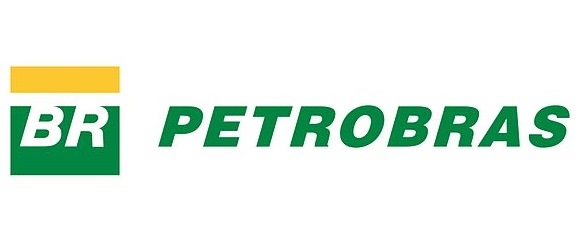Energy
Is Petrobras Becoming Too Tied to Brazil Elections and Sentiment?
Published:
Last Updated:
Petróleo Brasileiro S.A. (NYSE: PBR), or Petrobras, is showing how dangerous it can be for one company to be considered such a key market barometer for upcoming elections. With Brazil having tipped from a great emerging market back into a red-tape economy, and now into an economy that keeps weighing social issues over that of domestic and international finance, the question to ask is whether Petrobras is simply becoming too much of a daily barometer for Brazil’s upcoming presidential elections.
As the October 5, 2014, presidential election comes closer and closer, Petrobras shares seem to rise and fall drastically around predictive polling and news flows each day. From an outsider’s view, it is easy to see how and why a socialist-leaning president would be more liked by the bulk of the population — after all, Brazil’s general population is far from wealthy.
The flip side is also easy to see, and that is that international money is not going to flow into a nation that treats capital so poorly. To say that common stock investors of Petrobras are treated poorly in the capital structure would be the understatement of the year. If Petrobras was an international oil giant that acted like most of its large peers in the Americas and Europe, investors would likely flock back into Petrobras (and likely elsewhere in Brazil).
ALSO READ: 5 Top Energy Stocks to Own When Oil Pullback Ends
So, again the question comes up, is Petrobras simply getting too closely tied to the election cycle now? For starters, all you have to do is look at the share price moves since the stock hit bottom early in 2014.
Petrobras hit a low of $10.20 in March, and shares at one point had doubled by the start of September with a high of $20.94. Let’s just say that it is not normal at all for a company worth around $100 billion to have that sort of swing.
President Dilma Rousseff is the socialist candidate, deemed not friendly to Petrobras or to big business. Marina Silva is considered the pro-business candidate. Needless to say, you can tell what international investors of Petrobras want — hint, it isn’t more years under Rousseff.
Back in 2010, Petrobras raised billions in a secondary offering. That offering burned many institutional and retail investors who believed in the great opportunity of this company. To prove a point, it was an original deal of roughly 2.9 billion shares — at close to $34.50 per share. Also note that Petrobras performed worse than BP PLC (NYSE: BP) after BP’s Gulf of Mexico disaster. That is because of how the company operates — effectively as a government-run entity, which puts its employee union well above the shareholders and which often is mandated to sell product at prices that loses the company money.
At issue now is that Petrobras shares were above $20 at the start of September, and another drop of almost 6% on Monday had shares down at $15.80 again. And the market cap is $103 billion or so now, even after losing close to one-quarter of its value from the recent peak. Again, this just is not normal by any stretch of the imagination.
ALSO READ: Drop in Oil and Gas Prices Is a Buying Opportunity for Oil Services Stocks
It is beginning to feel as if Petrobras is simply becoming too much of a sentiment tool for the election. The good news is that the election is now roughly two weeks away, so an outcome is coming closer — assuming no deadlock run-off. The other good news is that some investors and analysts have started to feel as though, even if Rousseff wins, the post-election period will be less harsh on Petrobras. On that front, we are only willing to say that time will tell.
Other points of interest from internal and external sources are lining up and showing how critical the presidential election results will be. A Zacks article points out just how sensitive the situation is here: Brazil Presidential Election: Will Petrobras Gain the Most? Also, a BusinessWeek and Bloomberg report shows that Silva is losing support in a Brazilian poll that showed a tie in a run-off. Barclays recently said that there is deep value in Petrobras either way.
An old saying comes to mind, one shared by a colleague a decade ago: “Brazil is the most promising emerging market in the world, and it always will be.” Is it possible that things just became much more negative in Petrobras’ sentiment than they did in reality?
Now consider this. If BP created a disaster that would be the mother of all oil disasters, and Petrobras did not, then should the current government and governing matter as much as investors have voted? The answer may seem like an easy no on the surface, but the reality is that the capital structure of Petrobras and the business climate in Brazil complicates this more than a mere 800 words or so can adequately address.
ALSO READ: The Worst Economies in the World
Are you ahead, or behind on retirement? For families with more than $500,000 saved for retirement, finding a financial advisor who puts your interest first can be the difference, and today it’s easier than ever. SmartAsset’s free tool matches you with up to three fiduciary financial advisors who serve your area in minutes. Each advisor has been carefully vetted and must act in your best interests. Start your search now.
If you’ve saved and built a substantial nest egg for you and your family, don’t delay; get started right here and help your retirement dreams become a retirement reality.
Thank you for reading! Have some feedback for us?
Contact the 24/7 Wall St. editorial team.